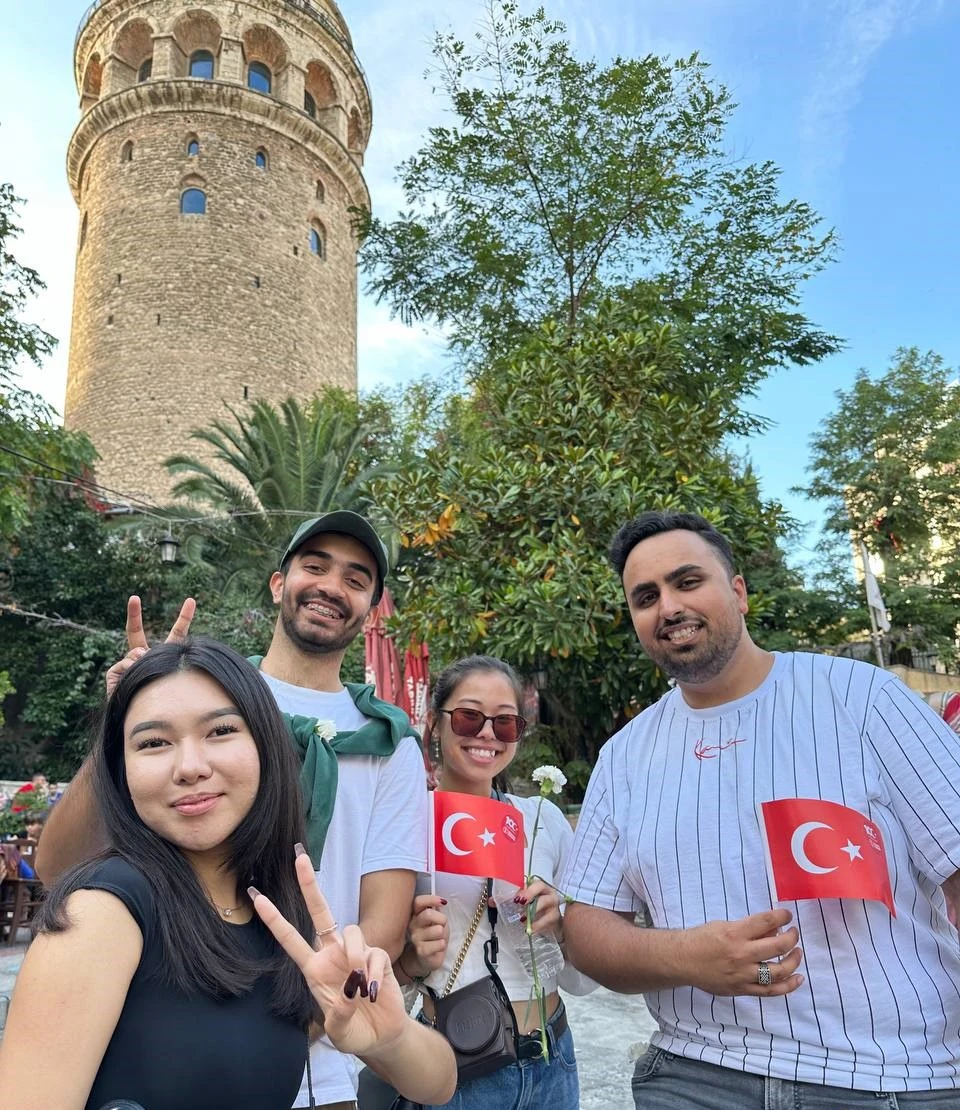Congratulations! You are going to study in Turkey!
But before you leave, you need to check a few important things. The StudyU team has prepared a checklist of what not to forget before studying in another country:
Get to know the education system:
In Turkey, higher education institutions use the European Credit Transfer and Accumulation System (ECTS). Under this system, a student receives a certain number of “credits” for successfully completing a course. During one academic year, 60 credits must be earned, i.e. 30 credits per semester. To obtain a bachelor’s degree, 240 credits are required.
The credit system gives students the ability to schedule and manage their own course load. Students who perform well academically can take more than 30 credits (maximum 42) per semester, which may allow them to graduate early. This rule works the other way around: by taking 30 or fewer credits, students can easily combine their studies with work or other activities.
The grading system in Turkish universities is represented by the following grades: A, B, C, D, E, F, where A is the highest grade and F means failure. Students who do not have enough credits to graduate or who want to accelerate their studies can take additional courses in summer school.
For students who wish to participate in exchange programs, credits earned abroad will be re-credited at their Turkish university. The most popular exchange programs are Erasmus (for Europe) and Global Exchange (for Asia, Africa and the Americas). With good academic performance, students can participate in exchange programs as early as the second year of study and spend up to three years abroad for the duration of their studies.

Schedule an arrival date:
An on-campus orientation session is available to all freshmen, during which you will become familiar with the schedule and academic requirements, learn how the library works, meet professors, and more. For an easier integration process, students are encouraged to attend an orientation session, usually held a few days before the start of their studies. In addition, an academic calendar is available on each university’s website to help you plan your trip.
Collect all required documents:
An important step is to collect all the necessary documents. The mandatory package of documents includes a valid passport, student visa (only for citizens of countries with visa regime to Turkey) and other documents required by the university. For example, you must have a medical certificate of health to move into the dormitory. This can be obtained and translated either in your country of residence or you can have it examined upon arrival in Turkey.
Among other things, you need to have a denklik, a document that equates your country’s education with Turkish education. It can be obtained either at the Turkish embassy in your country of residence or in Turkey. However, you will need to bring an apostilled and translated (in English or Turkish) certificate and a transcript of grades for the last 3 years.

Exchange currency:
Before leaving, it is important to check if your bank’s cards work in Turkey. Cash can be exchanged first for dollars or euros, or immediately for liras, depending on the price ratio. Note that the exchange rate at airports and tourist areas may be less favourable than in city exchange offices.
Take the things you need:
It is often much more expensive to ship things than to buy them in Turkey. To live in a dormitory you will have to buy bedding and a pillow, but remember that Turkey is famous for its textile industry. Therefore, the necessary clothes, shoes and bedding can be found in large quantities and for every budget. In addition, online stores such as Trendyol and Hepsiburada are available in Turkey, where you can find everything you need for life.
If you are particularly fond of your national cuisine, it is better to bring your favourite foods with you. Although you can find cafes and restaurants in Turkey with dishes from every cuisine in the world, Turkish cuisine is still predominant. Although it is world-famous, it may take some time to get used to its peculiarities.
Stock up on necessary medications:
All necessary medicines and their analogs are sold in Turkish pharmacies. However, it is worth bearing in mind that certain drugs and antibiotics require a prescription from a doctor, so it is better to bring them with you. Make sure you have a sufficient stock of the medications you take regularly, as they may be sold under different names or may not be available in Turkey. It is also advisable to bring a basic first-aid kit with analgesics, antiseptics and other essential first-aid supplies.

Get a SIM card:
Now let’s talk about mobile communication and Internet. Of course, there are free Wi-Fi zones in airports, cafes, public areas and other places, but to avoid stressful situations in the first days, you can connect roaming service. On the territory of Turkey, you can buy a SIM card with a passport, the cost of the package starts from 10 euros. After obtaining a residence permit (residence permit) it is necessary to reissue the SIM card in your name together with the student residence permit. This will allow you to save significantly on communication and internet services.
When choosing an operator, you should take into account the network coverage in your area and internet speed. The main mobile operators in Turkey are Turkcell, Vodafone and Türk Telekom, each of which offers different tariff plans.
Familiarize yourself with the Turkish language:
Even if your study program is in English, you may need a basic knowledge of Turkish for everyday life in the city: a few simple words or expressions will make the integration process much easier. Greeting phrases, questions about the right route, basic expressions in stores and cafes – all these will help you feel more confident and comfortable in your new environment.






